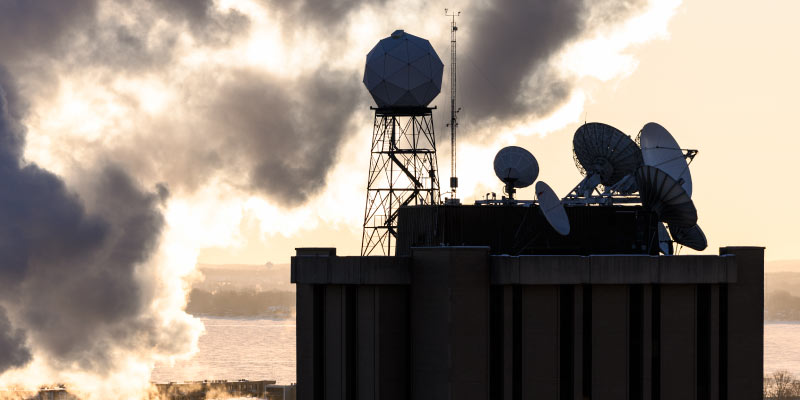Partnership in the Air
February 3, 2023
Photo: Jeff Miller/UW–Madison
Imagine you’re on a beach, and you pick up one single grain of sand. Now imagine dividing that single grain of sand 36 times. That’s about how big PM2.5 are — a miniscule yet omnipresent air pollutant. Appearing in either liquid or solid form, PM2.5 are one of the most dangerous pollutants to public health: they’ve been associated with negative health outcomes including heart disease and shorter life expectancy. They’re also the subject of a new project to monitor the varying air quality across Madison’s neighborhoods.
In late November, Madison Mayor Satya Rhodes-Conway announced that Madison received nearly $430,000 from the U.S. Environmental Protection Agency to boost the city’s air-quality monitoring. With partnership from three nonprofit groups and expertise from UW faculty advisors, the city will purchase and place 68 low-cost sensors across Madison. The end goal is to assess how air quality varies among historically underserved neighborhoods and develop action plans to mitigate those health disparities.
The project’s community partners — Foundation for Black Women’s Wellness, the Hmong Institute, and the Latino Health Council — will provide community-based expertise for the project’s development and help disseminate the findings. Two UW professors have already been tapped to provide technical and scientific expertise: Tim Bertram, professor of chemistry and affiliate professor of atmospheric and oceanic sciences; and the Nelson Institute’s own Tracey Holloway.
Read the full Nelson Institute article by Chelsea Rademacher, featuring AOS professor Tracey Holloway and AOS affiliate professor Tim Bertram, January 11, 2023
